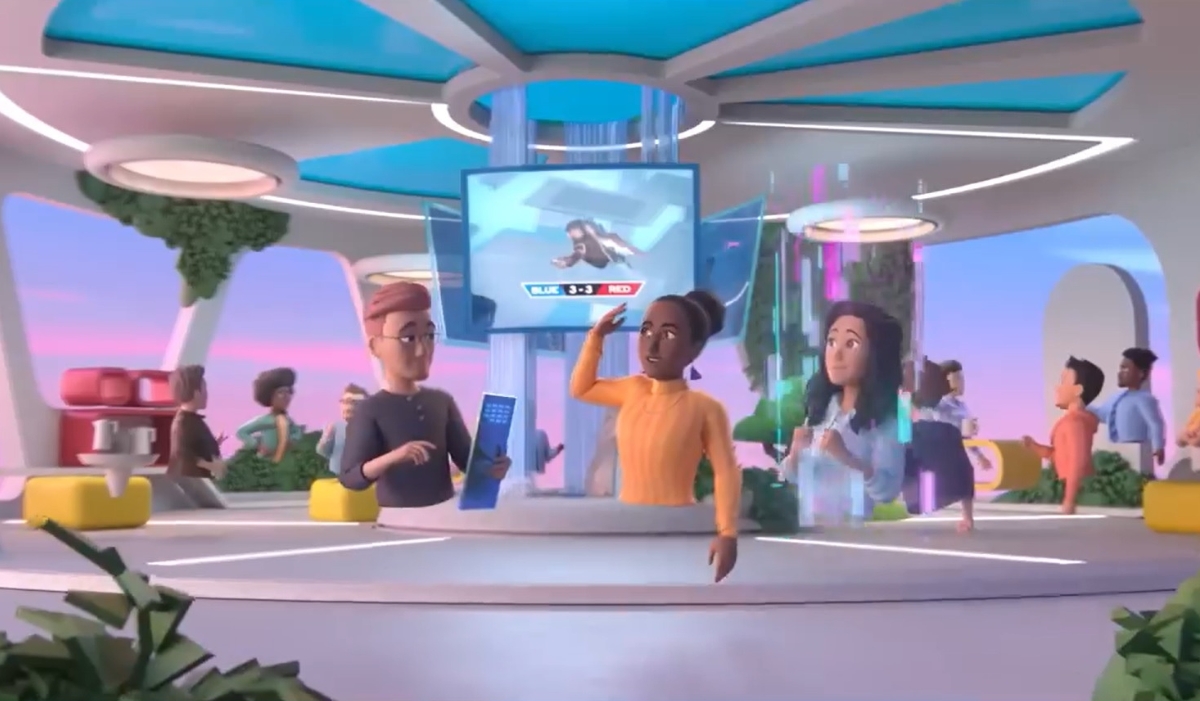ESILV engineering students have succeeded in creating a virtual museum prototype that can be tested using Oculus Quest 2 virtual reality headsets.
In partnership with the Centre Euro-méditerranéen pour la numérisation et la médiation du Patrimoine, the students have created the Virtual Museum: a virtual museum in the metaverse to preserve and mediate French heritage.
A virtual visit to the museum!
As in any real museum, the Virtual Museum offers an intuitive and enjoyable guided tour experience, with a dynamic display of work descriptions and an ergonomic menu.
Most of these works come from resources available free of charge on the Internet. Some have been created using photogrammetry, a measurement technique that makes it possible to determine an object’s shape, dimensions, and position in space using several photographic shots of the thing.
The virtual museum contains over twenty works spread over five floors, representing the different periods of human history: prehistory, antiquity, the Middle Ages, modern times, and the present day.
It can be ‘visited’ on VR Quest 2 headsets, a premium virtual reality headset available to the public.
A cross-disciplinary project including three majors
The Virtual Museum is a project carried out by 4th-year students from three different majors –Digital Modelling & Mechanics, Health Engineering & Biotechnology and Data and Artificial Intelligence – as part of ESILV’s industrial innovation projects under the supervision of Ahmed Azough, a teacher-researcher in Devinci Higher Education.
The Digital Group of Devinci Higher Education aims to encourage and participate in multidisciplinary, original, and disruptive research projects in which scientists, artists, designers, professionals, and students work together.
The Industrial Innovation Project 4 takes place in the second year of the engineering cycle in the ESILV engineering curriculum, a general engineering school at the heart of digital technologies.
This project takes place in the 4th year of the engineering school’s 5-year course. It involves a team of 4 students working on a specific problem, usually proposed by a company or research laboratory.
Bringing museum, Unity, Blender and C# together
The Virtual Museum was created using Unity, a multiplatform game engine, with the Unity Photon asset for the multiplayer part, and modeled on Blender, an open-source software package for modeling, computer animation, and 3D rendering, and mainly coded in C#, an object-oriented programming language designed for development on the Microsoft .NET platform.
The virtual museum can accommodate up to 20 virtual visitors simultaneously.
Digital technology in the service of culture
The creation of this project demonstrates the usefulness of digital technology, which is ESILV’s brand image, and positions digital technology as an ally in serving art, culture, and heritage.
It helps to highlight ESILV’s hybrid teaching experience and contributes to democratizing culture by demonstrating that it is possible to do tourism at a distance.
The Virtual Museum illustrates the ability of students to learn and produce in cutting-edge technological fields.
Moreover, with the Virtual Museum, the engineering students are contributing to France’s cultural influence in the run-up to the 2024 Olympic Games.
Congratulations to the student engineers behind this project:
- Alexandre Dubuc, class of 2024, Mechanical and Digital Modelling major
- Sandrine Neang, class of 2024, Biotech Health major
- Louise Grevet, class of 2024, Mechanical and Digital Modelling major
- Mélanie Courzereaux, class of 2024, Mechanical and Digital Modelling major
- Lucas Monteils, class of 2024, Data and Artificial Intelligence major
- Pierric Millet, class of 2024, Data and Artificial Intelligence major
Learn more about The Digital modelling & mechanics major
Learn more about the Health Engineering & Biotechnology
Learn more about the Data & Artificial Intelligence
This post was last modified on 30 May 2023 7:32 pm






